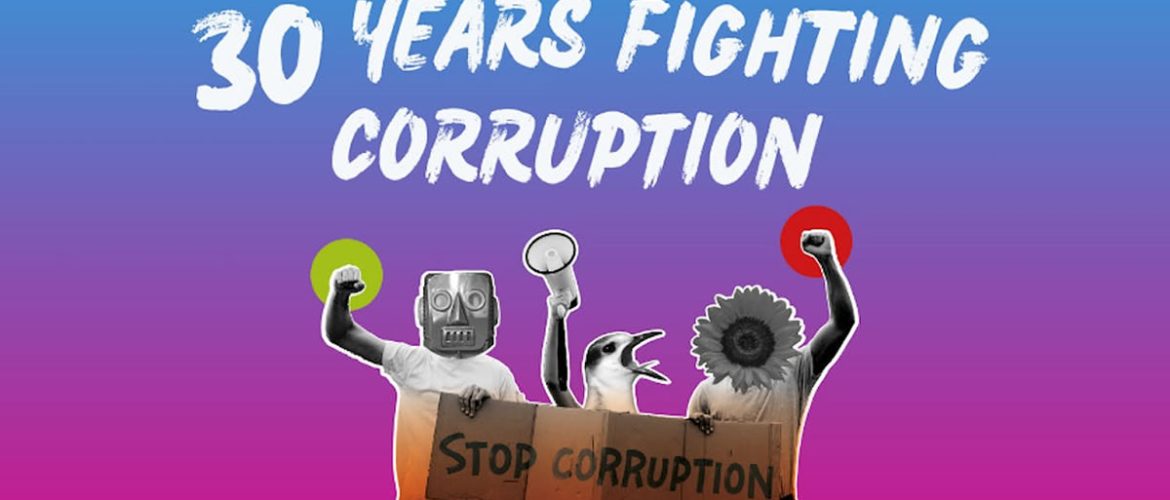Transparency International is celebrating 30 years of strengthening democracy, rights and equality by tackling corruption.
What began with a group of individuals trying to break the taboo around corruption and show that it can be stopped is now a global movement with chapters and partners in over 100 countries, challenging wrongdoing to hold power to account for the common good.
Over the past three decades, Transparency International has played a pivotal role in placing corruption at the top of the global agenda and spearheading action on all levels to tackle this pervasive issue. What now appears as common knowledge was driven by Transparency International’s work – that social justice, democracy and the protection of fundamental rights go hand in hand with the fight against corruption.
Driving global change
Over the years, Transparency International has achieved remarkable breakthroughs towards building a world free of corruption and bringing meaningful progress to change people’s lives.
Our research and advocacy efforts have shaped key international standards, including the 2003 United Nations Convention against Corruption (UNCAC) and the 2019 European Union directive on whistleblower protection, which is a landmark international law for defending people who expose wrongdoing. Our campaigning has also led to revising global standards on corporate transparency – now, over 200 jurisdictions must track the real owners of companies, making it increasingly difficult for corrupt people to hide their ill-gotten gains.
By driving the adoption of the OECD Anti-Bribery Convention in 1999 and pushing states to enforce it since then, we have played a decisive role in efforts to stop companies from bribing foreign public officials when conducting business abroad. This has led to hundreds of individuals and companies being criminally sanctioned for foreign bribery and billions being paid in penalties.
Every year, our Corruption Perceptions Index (CPI) draws widespread attention to governments’ weak spots – and outright failings – in tackling public sector corruption. And the Global Corruption Barometer (GCB) – the only worldwide public opinion survey on corruption – is equally hard to ignore. Having surveyed over 850,000 people in more than 150 countries, the GCB has revealed widespread distrust in institutions, and has gone even further to expose how officials demand sex from people trying to access basic services like health care or land registration. This is known as sextortion and it is one of several forms of discriminatory corruption that Transparency International not only researches, but supports survivors of and advocates against.
Source: Transparency International


